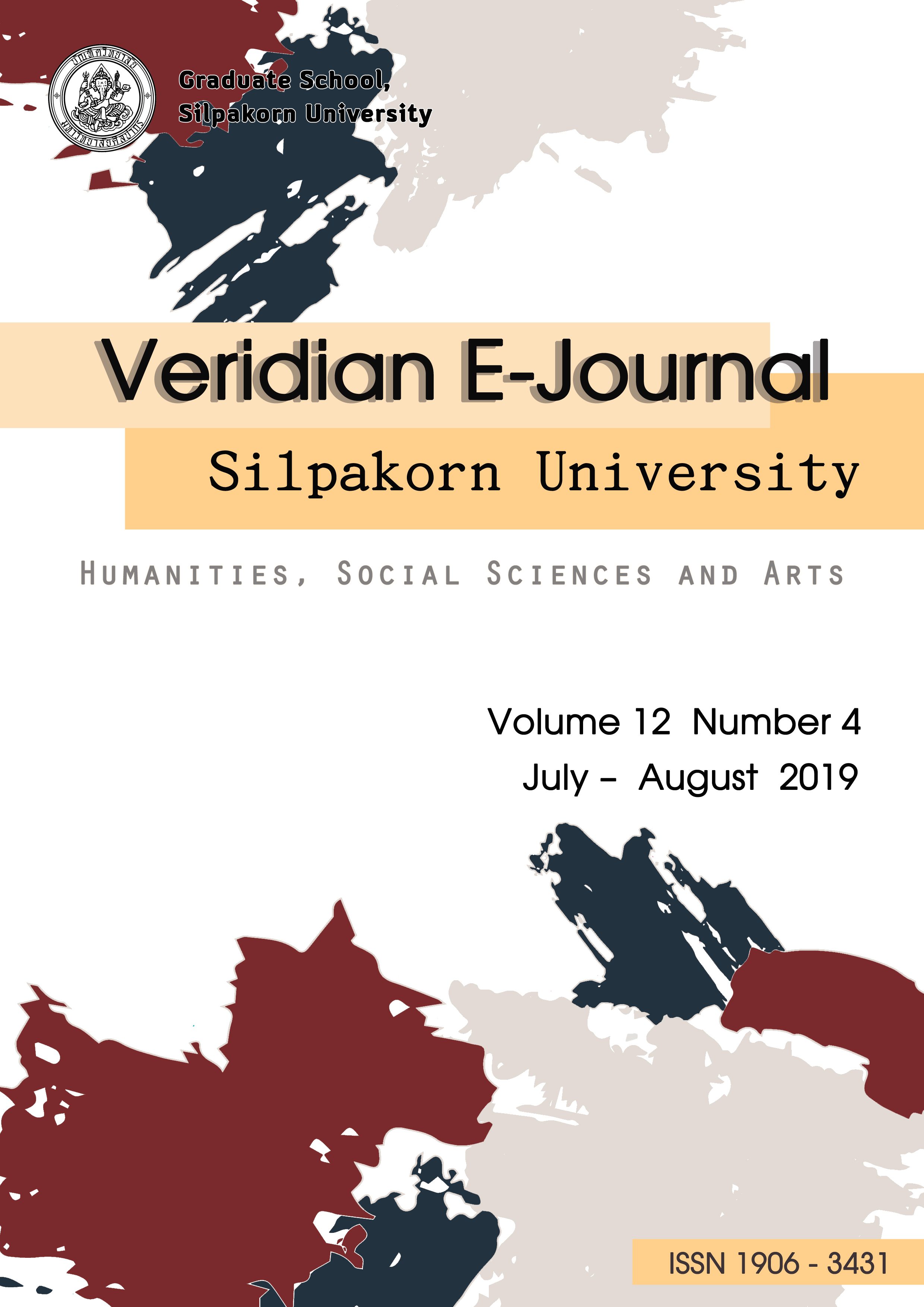การประเมินและปรับปรุงหลักสูตรศึกษาศาสตรมหาบัณฑิต แขนงวิชาเทคโนโลยีและสื่อสารการศึกษา (The Evaluation and Improvement of Master of Education Program in Educational Technology and Communications)
Main Article Content
บทคัดย่อ
การวิจัยครั้งนี้มีวัตถุประสงค์เพื่อ (1) ประเมินหลักสูตรศึกษาศาสตรมหาบัณฑิต แขนงวิชาเทคโนโลยีและสื่อสารการศึกษา และ (2) ปรับปรุงหลักสูตรศึกษาศาสตรมหาบัณฑิต แขนงวิชาเทคโนโลยีและสื่อสารการศึกษา
ผู้ให้ข้อมูลในการวิจัย ได้แก่ ผู้มีส่วนได้ส่วนเสียกับหลักสูตรศึกษาศาสตรมหาบัณฑิต แขนงวิชาเทคโนโลยีและสื่อสารการศึกษา ในปีการศึกษา 2554 - 2558 จากฐานข้อมูลทะเบียนนักศึกษา มสธ. ครอบคลุม (1) นักศึกษา จำนวน 213 คน (2) มหาบัณฑิต จำนวน 141 คน (3) ผู้บังคับบัญชา/ผู้ใช้บัณฑิต จำนวน 102 คน (4) อาจารย์แขนงวิชาเทคโนโลยีและสื่อสารการศึกษา จำนวน 4 คน และ (5) ผู้ทรงคุณวุฒิทางเทคโนโลยีและสื่อสารการศึกษา จำนวน 7 คน รวมจำนวน 467 คน เครื่องมือที่ใช้ในการวิจัย ได้แก่ (1) แบบสอบถามความคิดเห็นเกี่ยวกับหลักสูตรศึกษาศาสตรมหาบัณฑิต แขนงวิชาเทคโนโลยีและสื่อสารการศึกษาสำหรับนักศึกษา มหาบัณฑิต ผู้บังคับบัญชา/ผู้ใช้บัณฑิต และอาจารย์ประจำหลักสูตร รวม 4 ฉบับ และ (2) ร่างหลักสูตรศึกษาศาสตรมหาบัณฑิต แขนงวิชาเทคโนโลยีและสื่อสารการศึกษาประกอบการสนทนากลุ่มผู้ทรงคุณวุฒิ สถิติที่ใช้ในการวิเคราะห์ข้อมูล ได้แก่ ร้อยละ ค่าเฉลี่ย ส่วนเบี่ยงเบนมาตรฐาน และการวิเคราะห์เนื้อหา
ผลการวิจัยพบว่า (1) ผลการประเมินหลักสูตรจากผู้มีส่วนได้ส่วนเสีย พบว่า ผู้มีส่วนได้ส่วนเสียมีความคิดเห็นสูงสุดในประเด็นต่างๆ คือ (1.1) นักศึกษาประเมินหลักสูตรศึกษาศาสตรมหาบัณฑิต แขนงวิชาเทคโนโลยีและสื่อสารการศึกษาโดยภาพรวมผ่านเกณฑ์อยู่ในระดับมาก เมื่อพิจารณารายด้านพบว่าผ่านเกณฑ์ในระดับมากทั้ง 3 ด้าน คือ ด้านรายละเอียดของหลักสูตร นักศึกษามีความคิดเห็นว่าสูงที่สุดในเรื่องการสัมมนาเสริมผ่านเครือข่ายคอมพิวเตอร์ (e-Learning) ว่าเนื้อหาสาระช่วยเสริมการเรียนรู้จากสื่อสิ่งพิมพ์ ด้านกระบวนการเรียนการสอน นักศึกษามีความคิดเห็นว่าสูงที่สุดในเรื่องการติดต่อสื่อสารกับอาจารย์มีความสะดวก และด้านการพัฒนาคุณลักษณะของมหาบัณฑิตที่พึงประสงค์ นักศึกษามีความคิดเห็นว่าสูงที่สุดในเรื่องด้านความรู้ที่ได้รับจากการเรียนสามารถนำไปใช้ในการทำงานได้ (1.2) มหาบัณฑิตประเมินหลักสูตรโดยภาพรวมผ่านเกณฑ์อยู่ในระดับมาก เมื่อพิจารณารายด้านพบว่าผ่านเกณฑ์ในระดับมากทั้ง 3 ด้าน คือ ด้านรายละเอียดของหลักสูตร คือ ชื่อหลักสูตรตรงความต้องการของท่าน ด้านกระบวนการเรียนการสอน คือ การมีปฏิสัมพันธ์กับอาจารย์และมหาบัณฑิตใน e – Learning เป็นไปตามแผนที่กำหนด และด้านการพัฒนาคุณลักษณะของมหาบัณฑิตที่พึงประสงค์ คือ ด้านคุณธรรมจริยธรรม (1.3) ผู้บังคับบัญชา/ผู้ใช้บัณฑิตมีความคิดเห็นต่อคุณลักษณะของมหาบัณฑิต คือ มีวินัย มีความรู้ในศาสตร์ที่ศึกษา สามารถนำความรู้ไปสู่การปฏิบัติงานได้อย่างดี มีความรับผิดชอบต่อองค์กร สามารถทำงานร่วมกับผู้อื่นได้เป็นอย่างดี มีความสามารถในการใช้เทคโนโลยีสารสนเทศและการสื่อสาร และมีความสามารถในการศึกษาด้วยตนเองได้ และร้อยละ 82.35 จะแนะนำสนับสนุนให้บุคลากรในหน่วยงานหรือบุคคลรู้จักมาเรียนที่มหาวิทยาลัยสุโขทัยธรรมาธิราช และ (1.4) อาจารย์ประจำหลักสูตรที่มีต่อหลักสูตร พบว่า อาจารย์ประจำหลักสูตรมีความคิดเห็นว่าหลักสูตรมีความสอดคล้องกับนโยบายและกฎหมายทางการศึกษา วัตถุประสงค์ของหลักสูตรมีความชัดเจน และ หลักสูตรมีความสอดคล้องกับความต้องการของสังคม และ (2) ผลการปรับปรุงหลักสูตร พบว่า ผู้ทรงคุณวุฒิมีความคิดเห็นว่าสามารถคงสาระสำคัญส่วนใหญ่ของรายละเอียดหลักสูตรไว้เช่นเดิม และมีข้อเสนอแนะเพิ่มเติม ได้แก่ ควรเพิ่มกิจกรรมการแลกเปลี่ยนประสบการณ์การทำวิจัยทางเทคโนโลยีและสื่อสารการศึกษา และการผลิตนวัตกรรมทางการศึกษาใหม่ๆ ควรเพิ่มการให้คำแนะนำและติดตามการทำวิทยานิพนธ์/ค้นคว้าอิสระของนักศึกษาอย่างสม่ำเสมอ และควรให้ความรู้และทักษะเพิ่มเติมในการเขียนโครงร่าง การเขียนรายงานแก่นักศึกษา
The purposes of this research were (1) to evaluate the Master of Education Program in Educational Technology and Communications; and (2) to improve the Master of Education Program in Educational Technology and Communications
The research sample was stakeholders in Master of Education Program in Educational Technology and Communications; which was 213 students, 141 graduate students, 102 commander/employers of graduate students, 4 full-time lecturers, and 5 experts in the field of Educational Technology and Communications from the student registration database at STOU. The research instruments was 1) questionnaire about opinions towards the program and 2) the draft of program. Statistics used for data analysis was percentage, mean, standard deviation, and content analysis.
Research findings revealed that (1) the evaluation of opinions towards Master of Education Program in Educational Technology and Communications from the stakeholders was at the highest level on the following issues: (1.1) The subject of technology and communication in education at the overall level passed the criteria. When specific aspects, it was found that the criteria was at the high level for all three aspects. Students had the highest opinions on the seminar via e-Learning that the contents help to learn from the printed media. Instructional process aspect: students had the highest opinions that communicating with faculty was convenient; and the development of the characteristics of the desired Master. Students had the highest opinions on the knowledge gained from the study can be used in the work. (1.2) The graduate students toward the evaluation criteria was at the highest level. When specific aspects, it was found that their opinions were at the high level for all aspects. The details of the course was the name of the course. The teaching process was to interact with teachers and masters in e-Learning according to the plan. (1.3) Commander/Employers of graduate students had the opinions on the characteristics: discipline with knowledge in the field of study and can bring knowledge to work well, responsible for the organization, can work with others as well, ability to used information and communication technologies and 82.35% of commander / employers recommend to support staff to study at Sukhothai Thammathirat Open University and; (1.4) in the aspect of the program, full-time lecturers had opinions that the program was consistent with the policies and laws of education. The objectives of the course was clear and the program was consistent with the needs of the society and (2) the results of the program improvement show that the experts was of the opinions that the majority of the program details was retained. There should be more exchanges of experiences in research of educational technology and communications; and educational innovative production. It should be added regularly to the student's thesis / independent study and follow up. It should provide additional knowledge and skills in proposal; and writing reports.

